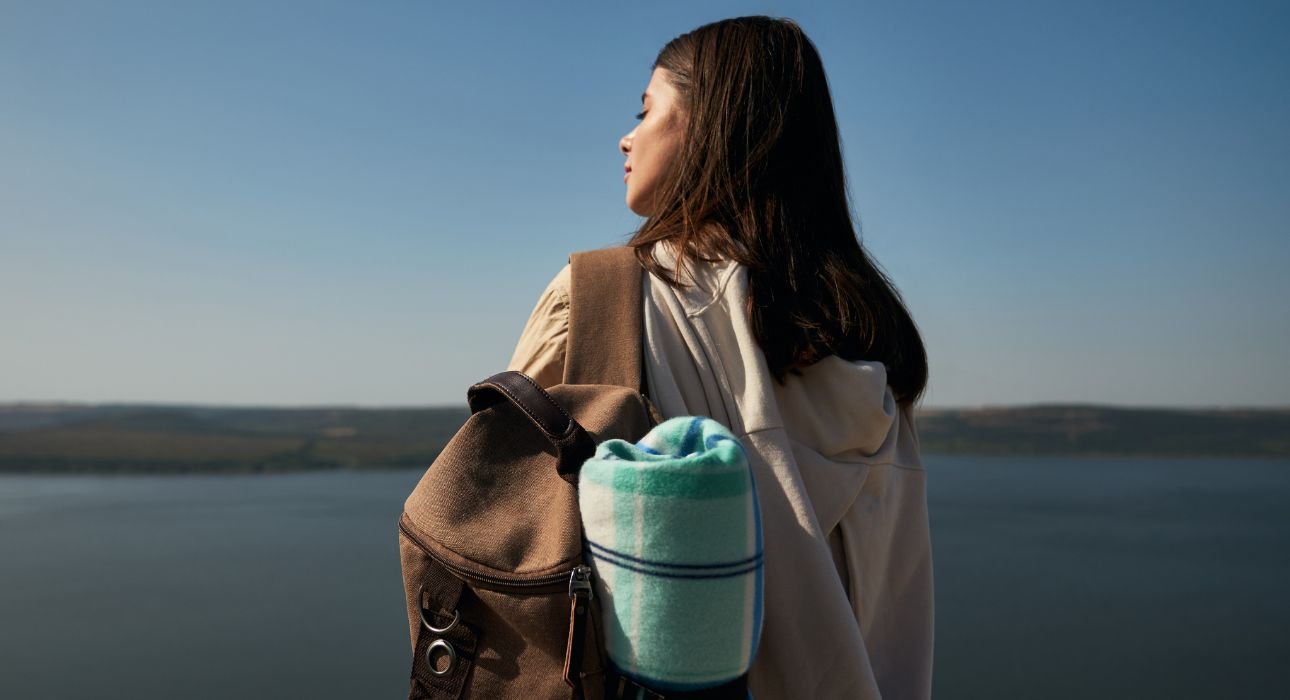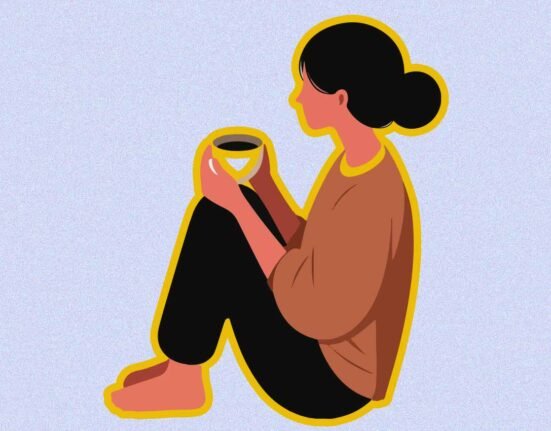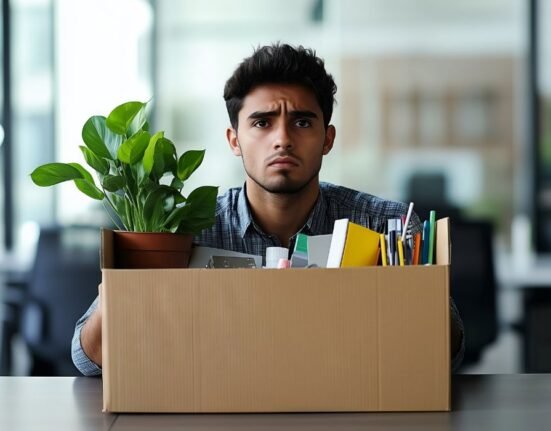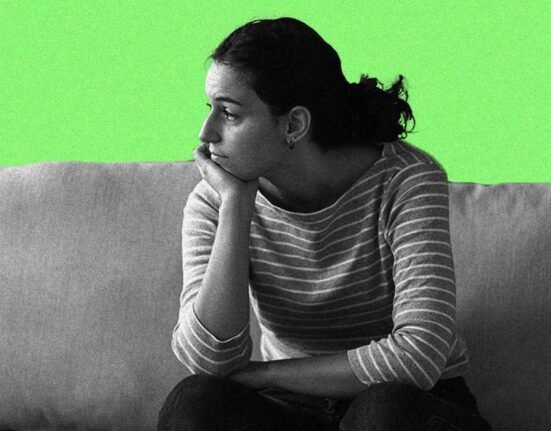Solo travelling is not limited to going on holidays; it is a deeper self-inquiry. Stepping out of a specific role of the situation, new and profound comprehensions of self are often catalysts to significant growth (Yang, 2020). The simple act of strolling through different places and being in a position to make and break plans as one sees fit can operate as a source of confidence and self-sufficiency.
Such self-sufficiency can serve as a basis for deeper self-scrutiny and understanding concerning the self, personal beliefs and the overarching purpose of life. The experience of solitary walks, with the addition of new settings and situations, is a social self-redefining experience, as it occurs outside modern structures (Shen, 2024). The solitary experience of new settings and activities is a profound social statement, redefining the self outside modern social structures. Alone on the road, one can find new self-dimensions and new social statements.
The Freedom of Unfiltered Choice
When travelling solo, travellers remove themselves from the continual negotiation that is often difficult with group dynamics. Travellers have control of the decisions and actions, and what to eat, what to do, and when to have a break. Having this control removes perceived obligation and makes preferences resurface that might have become obscured by social obligation (Yang, 2020). With no regard for others’ potential thinking or expectations, travellers can really explore their inclinations. Dislike of challenged social norms can also be a motivation for travelling. She might not want to start a day early, choose the bookstore over the busy museum, or want to spend a day without plans.
Such unfiltered actions are a source of preference definition in the context of travelling. Are you left alone in uncertainty—like figuring out a train route with no backup confidence—and to remain engaged in the challenge can have a sharpening effect. This produces confidence in one’s own intuition. Eventually, the continuous agent practice evokes deeper self-trust, and it’s proof that going at your own pace will not only get you what you desire, but also thrive from it. The consequence is the traveller can better articulate clearly, honestly and without ambiguity who they are when no one is looking.
Learning to Trust Yourself
Your own decision-making skills will be put to the test without any affirmation or approval from anyone. You learn the value of self-reliance, even if it means proving to yourself that you will be fine on your own (Teng, 2023). Your own safety instincts guide you through planning for the night, on the map for the next site, and deciding the most appropriate person to help you.
You conquer small challenges on the way, like passing through transport gates or a puzzle of room allocation; you learn to deposit self-influx, and each time you encounter the problem pattern, asking for aid, missing items, or lack of proper help, you sort through and order yourself to be resilient. In each of these encounters, you will learn to focus on the parts of your unresolved doubts, proving that you can navigate through uncertainty (Maiurro & Brandão, 2024). Over time, the trust you develop, specifically regarding travel, transcends into personal aspects of your life and potentially even your professional life.
Read More: Travel for Soul: A Journey to Self-Discovery and Confidence
Rewriting Identity Through Encounters
You’re not overestimating the sense of novelty provided by meeting new people. Locals, fellow travellers, and the rest will show you new perspectives like a mirror. Meeting new people and interacting with them, no matter the context, a new traveller may assert their own uniqueness. Other, deeper assumptions and new perspectives may form from brief, yet powerful, interactions. Even the simplest of social situations, like working with a stranger, eating a meal, and chatting in a hostel, may create deeper bonds and understanding that strip away the preconceptions and stereotypes seated deep inside (Shen, 2024).
So, you may even meet social expectations that you’ve been carrying unconsciously. A stereotype of a timid person, for example, may be disarmed by assertiveness. Conversely, social assumptions of distrust may be rebutted. Each new encounter may be an unwilling brush in the artist’s hands, yet the self-portrait is authentic and bold; it is based on new, richer, and more honest interactions from the everyday, not on the societal expectations you stripped away. As these moments accumulate, they become integrated into and alter a more fluid and expansive sense of self that is forged from human connection, regardless of boundaries (Aron & Aron, 1996).
Returning Home as a Changed Person
While solo travel can often result in a profound change within the individual traveller, the real challenge may start when you come home from your travels. The certainty, independence, and outlook acquired in life may just not fit in with your daily routines. The feeling of discontent when the ‘daily’ routines are resumed may deepen the feelings of disconnection in your life. It is commonplace to describe this as “reverse culture shock” (Gaw, 2000). You might have new and different personal boundaries, and a strong sense of self, as well as a clearer idea of what you want from life. Unfortunately, if you don’t actively and intentionally integrate this new self into your daily rhythms, it may ‘go away.’ Some people have described this feeling as “post-travel depression,” where you miss not a place, but a person you become while travelling (Smith, 2021).
Read More: How Travelling Beneficial For Mental Health?
1. Reintegrating After Travel: Turning Return Into Renewal
Research in psychology explores a phenomenon that occurs while travelling alone, which is the peak state of being. The peak state of being may have contributed to your experience of being present (simply doing the thing you are doing), virtuous and brave, and directly stretching you into new places of growth (Maslow, 1964). When you return to a structured life, with exceptionally predictable surroundings and limited choices, an old sense of predictability may seem suffocating. The emptiness of returning from travelling is not a simple feeling of nostalgia and space. The emptiness may also be a sign of just a small expansion of your identity that can’t fully be embraced in your past context (Woolfe, 2024).
The process to create long-lasting change in your life is already here: Active Integration = to treat the re-entry as a continuation of the journey. This means sharing stories, creating places at home for new practices (like mindfulness or spontaneity), and physical places at home where you can set a ‘third space.’ You can socialise with other travellers through an organisation or with someone who has travelled and joined a support group as a mentor. In the end, going back home is not about going back to what you had, but what you had lost in the redefining of your home and your new self discovered when you travelled (Teng, 2023).
Conclusion
Solo travel dramatically reshapes one’s identity by shedding attachments and inner roles. Each independent decision in travel, from routes to meals, conveys preferences. The crossing of new boundaries builds self-reliance; obstacles in travel and strangers in new places are proof of one’s own judgment. Travelling fosters empathy and a sense of perspective by connecting new preferences and views. It is not uncommon to experience culture shock when returning home, not from the place just left, but from all the self you have lost in the process.
FAQs
1. Is solo travel safe, especially for women?
Yes, solo travel can be safe with proper preparation. Researching destinations, choosing secure accommodation, and trusting your instincts are essential. Many women travel alone safely every year. Awareness and preparedness, not fear, are key.
2. What if I feel lonely while travelling alone?
Feeling lonely occasionally is normal, but solo travel often encourages meaningful interactions with locals and fellow travellers. Hostels, group tours, walking tours, cafés, and community events create opportunities for connection when you want it and solitude when you need it.
3. How does solo travel help in understanding oneself better?
Travelling alone removes external influences and expectations. Every decision, big or small, comes from your own preferences. This clarity helps surface who you are when you are not performing a role or responding to others’ expectations.
4. Will the confidence I gain while travelling translate to my everyday life?
Often yes. Skills like navigating uncertainty, trusting your judgment, and adapting to the unexpected tend to generalise into personal, social, and professional life. The challenge is active integration once you return home.
5. Why does returning home sometimes feel uncomfortable or disappointing?
This feeling is sometimes known as reverse culture shock. Your identity may have expanded during travel, but your environment at home may not have changed. The discomfort signals growth and the need to intentionally integrate your new experiences into daily life.
References +
Aron, A., & Aron, E. N. (1986). Love as the expansion of self: Understanding attraction and satisfaction. Hemisphere. SCIRP+2ResearchGate+2
Gaw, K. F. (2000). Reverse culture shock in students returning from overseas. International Journal of Intercultural Relations, 24(1), 83-104. https://doi.org/10.1016/S0147-1767(99)00024-3 Tallinn University of Technology+1
Maslow, A. (1964). Religions, values, and peak experiences. Ohio State University Press.
Shen, [Initial(s)]. (2024). [Title of article/book]. [Publisher]. (Note: You need the full bibliographic details for this one.)
Smith, J. (2021). Post-travel depression and reintegration challenges. Journal of Travel Psychology, 12(3), 45-57.
Teng, Y. (2023). Solo travel and identity transformation. Frontiers in Psychology, 14.
Yang, E. C. L., et al. (2020). What motivates and hinders people from travelling alone? A study of solo and non-solo travellers. Current Issues in Tourism, 24(3).













Leave feedback about this